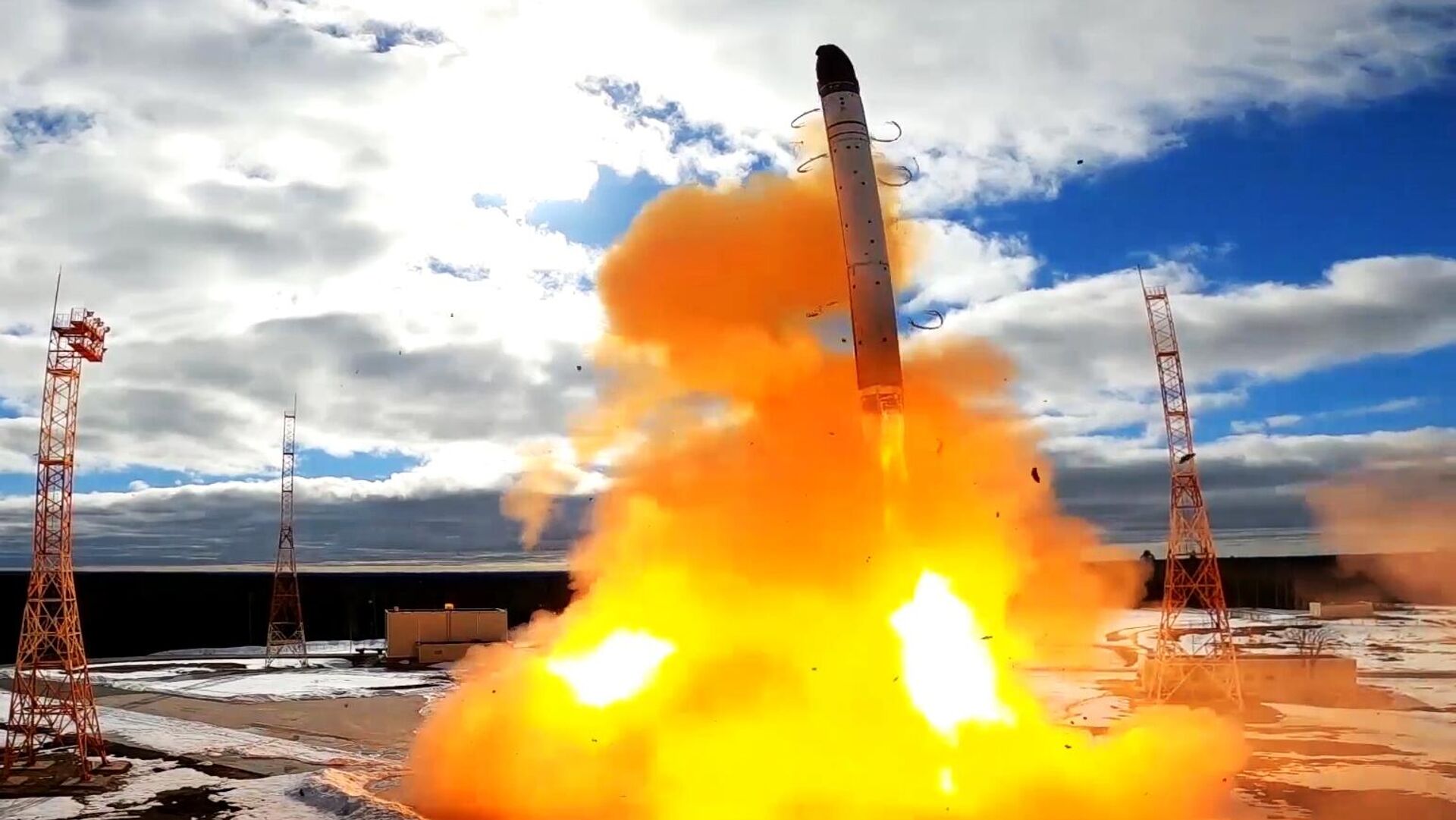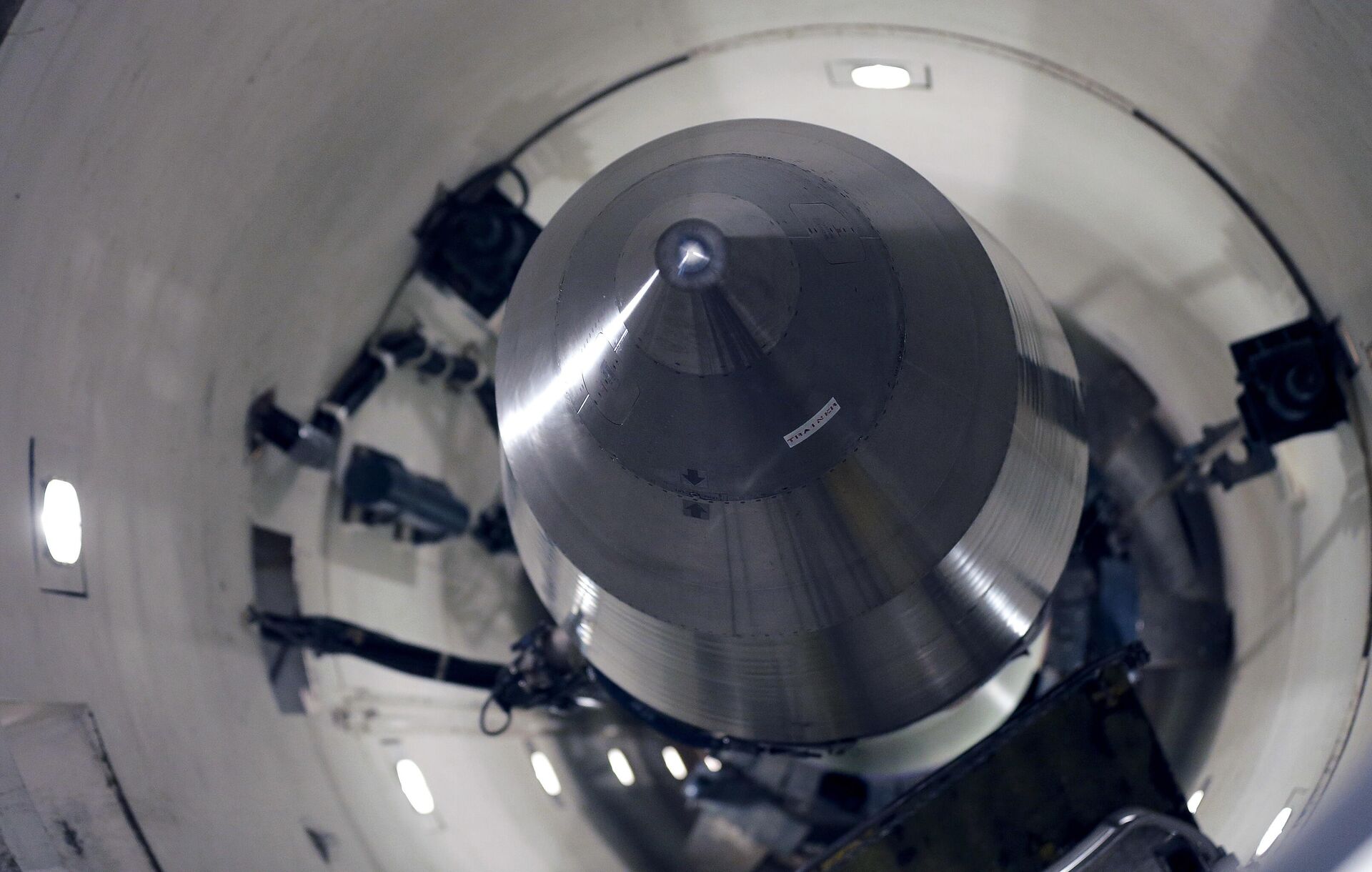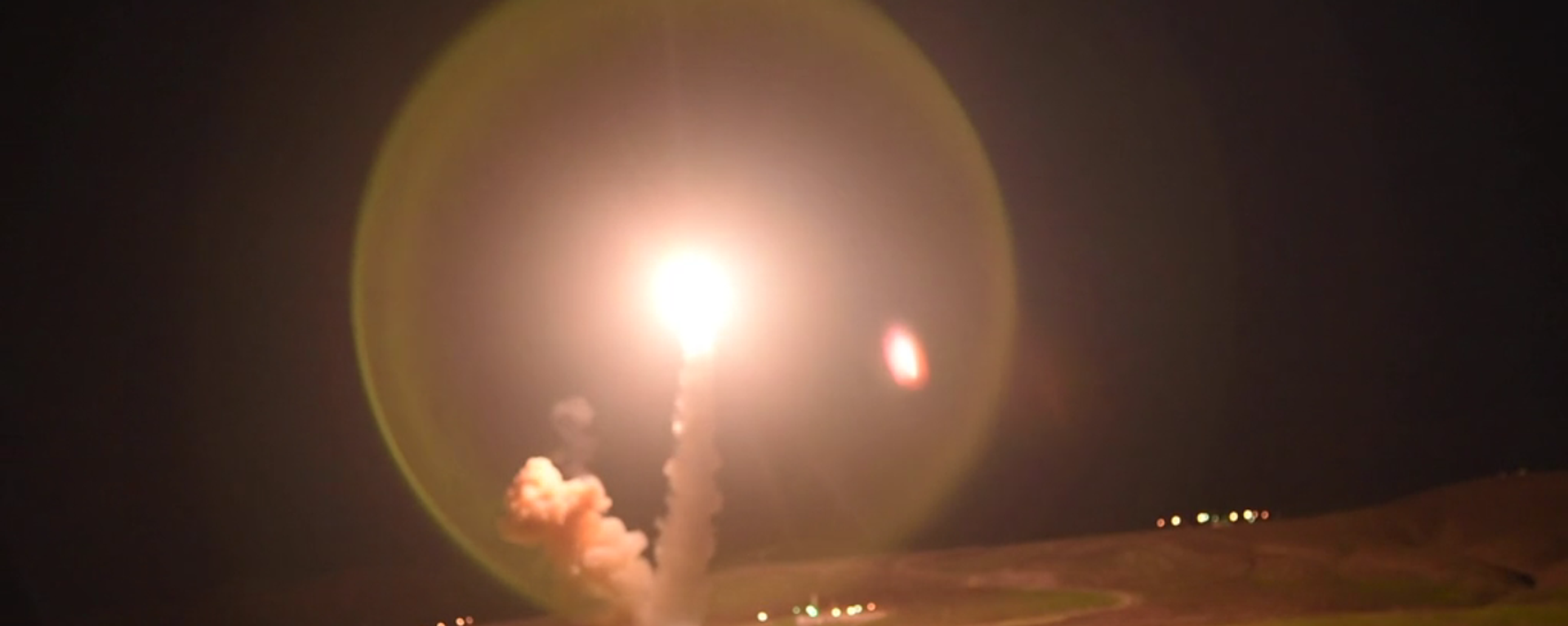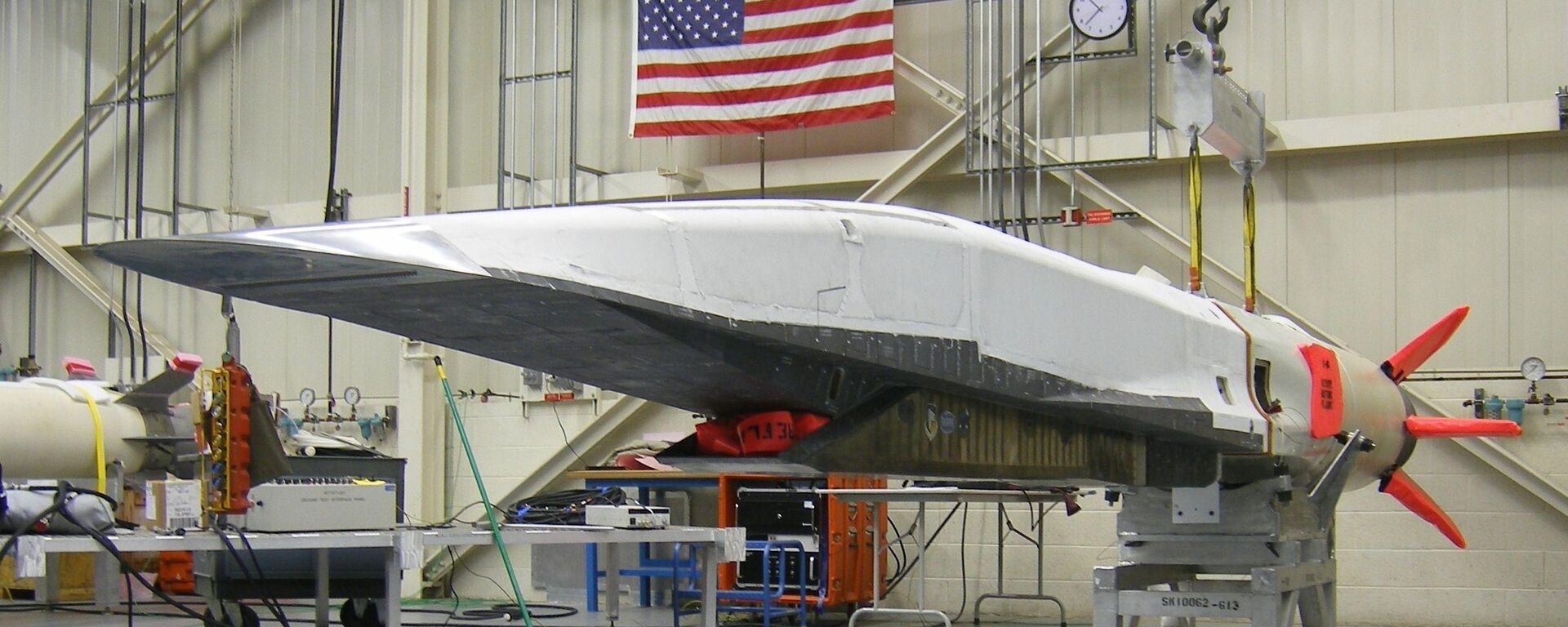Scott Ritter: US Pushing Nuclear Arms Race 'Can Only Have Tragic Ending’

© Sputnik / Russian Defence Ministry
/ Subscribe
The US has steadily fallen behind Russia and China in terms of strategic competition, while still insisting on pursuing conflict with both nations in an attempt to reassert its claimed superiority. That situation is ripe for producing a disastrous outcome, an analyst told Sputnik.
In early November, a scheduled test of an unarmed Minuteman III intercontinental ballistic missile (ICBM) by the United States ended in failure as the Air Force was forced to prematurely self-destruct the missile in mid-flight. The Pentagon said it was “due to an anomaly” during the test.
The nuclear-tipped missile has been in service since 1970, having its service life extended several times after the end of the Cold War in 1990, which caused the US to de-emphasize strategic missile production. A new system, the Sentinel ICBM, is currently being developed to replace the Minuteman III, but isn’t scheduled to fully replace the older missile for another decade.
However, when the Sentinel and other nuclear-capable weapons, such as the B-21 Raider bomber, finally enter service, they’ll already be outclassed by Russian and Chinese counterparts, since those nations have already achieved nuclear superiority over the US, Scott Ritter, a former UN weapons inspector in Iraq, told Radio Sputnik’s The Critical Hour on Thursday. Ritter recently authored an article on Consortium News titled: “The End of US Nuclear Superiority.”
“The United States has a nuclear deterrence model called the Triad. There's three legs to the triad: there's the manned aerial bomber leg that consists of B-52H bombers and B-2 bombers; there is a sea leg, submarine launched ballistic missiles, the Trident IIs carried on board the old Ohio-class submarines; and then there's the ground leg, which consists of 400 Minuteman III missiles that are loaded into silos across the Midwest of the United States,” Ritter explained.

An inert Minuteman III missile is seen in a training launch tube at Minot Air Force Base, N.D., June 25, 2014.
© AP Photo / Charlie Riedel
“The Minuteman III is a very old missile. It's been refurbished. It's had its fuel scraped out, new fuel put in. But the bottom line is, it's reached the end of its usefulness in this test. You know, it's a test that the Air Force carries out periodically that's designed to show the reliability of the Minuteman III system. Well, it failed. And so what we have here is a Cold War relic that is on life support and it may not be able to do the job that it's supposed to do.
“Then you compare and contrast this with the Russian missiles that are being fielded now, two in particular: the Sarmat missile, which is a heavy intercontinental ballistic missile carrying multiple warheads, including the Avangard hypersonic maneuverable warhead. It also can be fired, because of its range, over the South Pole, which means it comes into the United States from a direction that our early-warning radars aren’t situated - all our radars are oriented toward the North Pole, the traditional entry route of Russian missiles if there was to be a war. There's the Yars missile, which is not only road-mobile, but also could be fired from a silo. And the Yars missile can carry the Avangard hypersonic maneuverable warhead.”
“The Avangard is a warhead that's designed to defeat any missile defense system in the world. It was developed by the Russians in response to the decision by President George W. Bush, back in 2002, to withdraw from the Anti-Ballistic Missile (ABM) Treaty and therefore begin deploying ballistic missile defense systems that the Russians deemed to threaten the notion of strategic parity, meaning that the United States fielded a missile defense system capable of shooting down Russian warheads and fielded systems that could allow for a preemptive first-strike. The United States may believe they can nullify Russia's strategic nuclear deterrent and therefore push Russia around any way they want. That's unacceptable to the Russians.”
“So they built these new missiles, the Yars, the Sarmat, the Avangard, and others, including a nuclear-powered cruise missile, which they just successfully flight tested last month. All these weapons were put out by the Russians, they're better than anything we have, there's nothing we have that comes close to these weapons, which means now that we have to move forward to modernize our own way.”
“And we're doing that: we're spending hundreds of billions of dollars to build a new ground-based missile, I think it's called the Sentinel. It's supposed to be ready sometime in the 2030s, but it never will be. It doesn't work that way in America. The systems always overrun on time, on costs, etc.. We have a new bomber, the B-21, that's been flight-tested, but is it going to be filled in sufficient numbers? We don't know. Has it been accepted for operational service? No. Are there problems that can come up? Probably. And then we have a new class of ballistic-missile submarines that are being built. But everything is on the drawing board. And what we're finding out now is that we don't have any money. I mean, we spend almost $900 billion a year on defense and we don't have any money.”
“The military that has failed six consecutive audits, $3.3 trillion in assets, 65% of these assets can't be accounted for, and yet we're going to spend hundreds of billions of dollars to try and modernize a Nuclear Triad that, when it's deployed, will already be inferior to that which the Russians have. And here comes the dangerous part: there will be no arms control treaties in place. The only arms control treaty that exists today is the New START Treaty, negotiated in bad faith by the United States in 2010. The Russians say, ‘the hell with you, We're done with you. We're finished. We're tired of your lies, your deceit. We now have achieved nuclear superiority and we're not going to let you go to the negotiating table and take that back at a time when you continue,’ you being the United States, ‘to articulate a policy that says our goal and objective is the strategic defeat of Russia,’” Ritter said.
“We have to get our act together and if we don't, we're in danger of heading down the path of a nuclear arms race that can only have a tragic ending.”
Ritter said that the West had underestimated Russia for decades, pointing to Russia’s performance in the special operation in Ukraine as an example of the tragic consequences of that false sense of superiority.
“Look at The Economist, the hard Russophobic magazine. The cover[says]: ‘Is Russia winning the War?’ Oh, yeah. ‘Did we get it wrong?’ You're damn right you did. Everybody got it wrong. The Russian defense industry right now is orders of magnitude advanced over ours. They are producing new systems, modern systems, systems that are derived from experiences of less than a year. Like I told you, the B-21 is a 10-to-15 year old design. The Russians are putting out new things. Look what we did with China: we're trying to strangle their chips, saying they will never be able to develop a certain size chip. And so we cut them off from the lithographic machines from the Netherlands and from this supply and that supply, and in less than a year, the Chinese are not only producing that chip, but better chips, because they were compelled to do it themselves. And they are so far ahead of us in terms of other technologies.” he said.
“You know, we just fool ourselves, this is the problem. All of these policies are put out by a Congress that lives off of the ignorance of the American people and the fear that's generated by that ignorance. So all of these policies are not designed to actually address the problem, because they're not. The proof is in the pudding: we didn't stop Russia, we failed, Russia is succeeding on all fronts. The same thing with China. We haven't dented them at all, they're moving ahead full steam. So none of our policies have worked except to do one thing: play off the ignorance of the American people to put fear into them and then to do these policies of these politicians look strong, because the last thing the politicians want to do is be explaining to the American people why the Chinese and the Russians are better than we are.”




